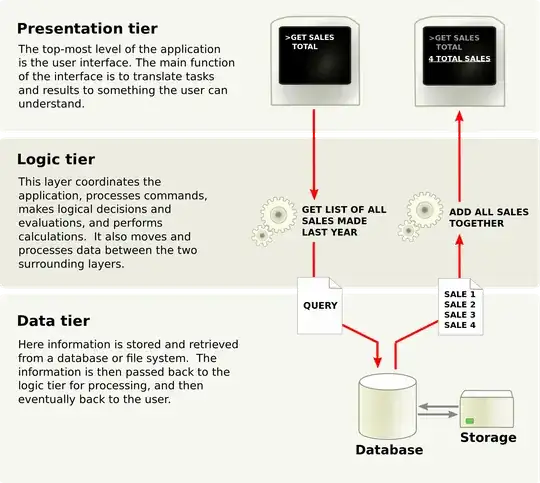I won't be broadcasting the IP address of my database because I won't be sending calls to it, which makes my database inaccessible to the outside world
Not knowing an IP address does not make something in that address inaccessible. In an analogy it is a house without a street address. If a thieve walks by that house, he can still enter the door.
In order for your database to be inaccessible you need to use a firewall. For example, you can prohibit access to your database port from the external network.
I think you do not understand the term DMZ to its full extent. DMZ can be implemented in many ways, and its purpose is to put security measures between the external facing network and the rest of the internal network which should not have anything externally facing. This means that even if a breach occurred on a certain server in the DMZ, utilizing it to get access to other machines in the internal network will be much harder.
Even if you have the IP address of a machine in the internal network, that will not grant you access from the external network to that machine, thanks to the firewall which protects the internal network from the outside world.
Having said that, your internal IP addresses and of course the credentials used to authenticate with other services in the internal network are still sensitive data which should be kept secret. This is an "extra" security measure on top of your firewall, in case someone got access into your internal network, for example by infecting one of the devices in your internal network with a virus.
Keeping these as a secret is done with the right configuration of the web server, not to expose these details to the outside world, and it is also recommended to encrypt these details as an additional security measure.
